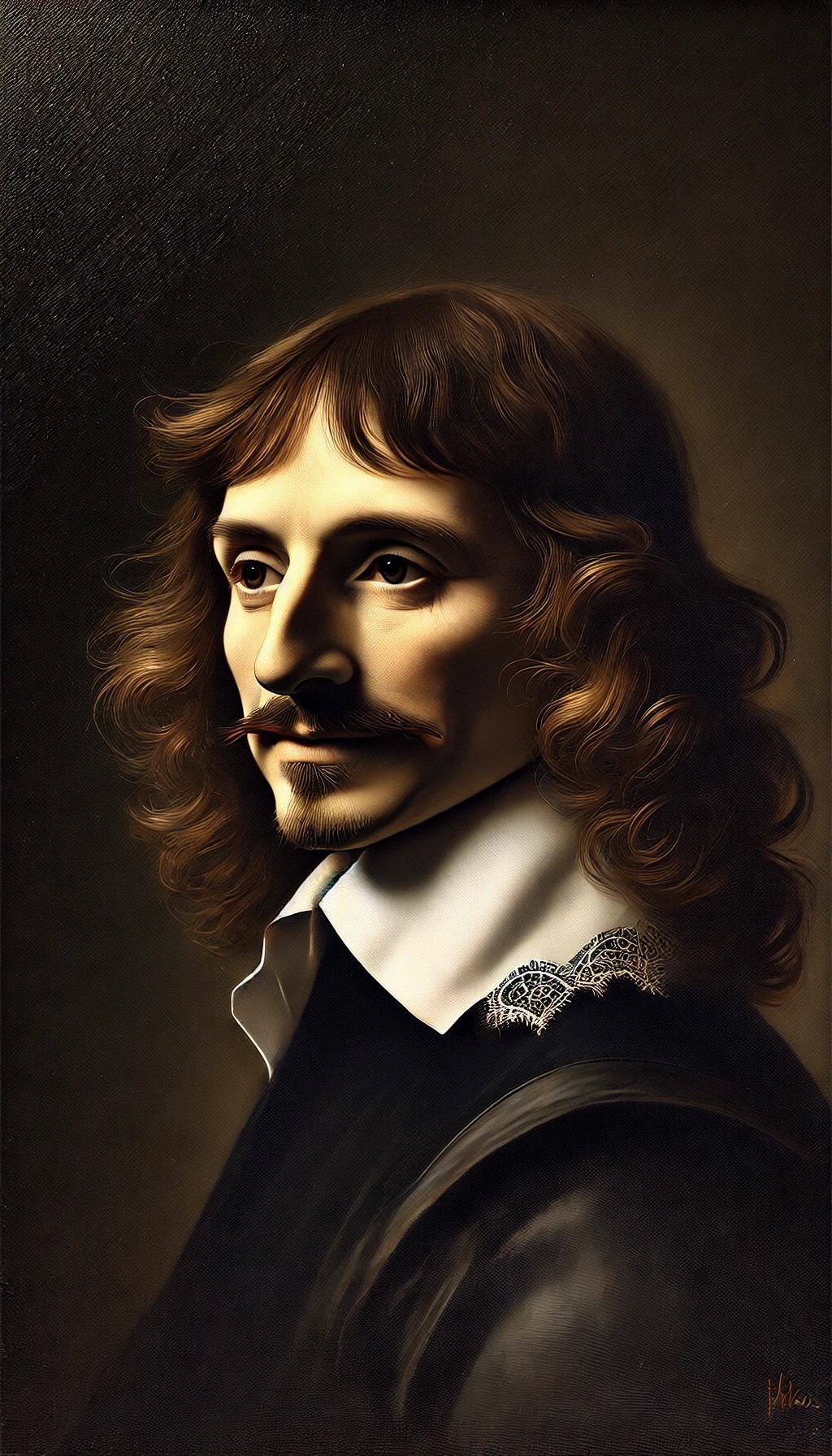“Dubito, ergo cogito; cogito, ergo sum dubitator-dubitando” / “I doubt, therefore I think; I think, therefore, I am a doubter-doubting” — this modern rendering sharpens René Descartes’ chain from doubt to existence, emphasizing that doubting is not an obstacle to clarity but the true pulse of thinking itself. When “I think,” I am not simply solidifying my existence; I am acknowledging the inexorable function that defines me—a processor of thought, relentlessly refining, questioning, unsettling, forever in flux. To say “I am” is already to mistake the product for the process, a static representation of something that is never static.
Indeed, the self as “processor” is as much in doubt of itself as it is in doubt of the world, constantly revising, discarding, reassembling the fragments of its own cognition. Where Descartes stops at “I am,” one might insist on the machinery still active, the doubter persisting in each cycle of thought. “I am” does not capture the unceasing machinery. It only captures the husk of that activity, the outermost shell that can be observed and named. What persists in doubt is a pulse, not a monument—a fluid system, not a single, determined point.
To say “I am a doubter, therefore I am a thinker” is to see the thinker as a verb more than a noun, to recognize that the activity of thought, its restless processor-processing, is the continuous act of becoming rather than the fixed state of “being.” By the time “I am” is claimed, the living process has already moved on, spilling forth into fresh doubts and new contingencies. What lies behind this assertion of existence, “I am,” is not the simplicity of a single, resolved point of consciousness but a constantly self-revising mechanism of doubting—a doubting that, paradoxically, keeps the thinker alive precisely because it resists closure.
In stressing the processor-processing rather than the final product, we acknowledge that thought is never a definitive answer but an ongoing act of questioning. Each “I think” is not an endpoint but a checkpoint, a recursive moment where thought doubles back upon itself, examines its own machinery, and presses forward in renewed uncertainty. To be a doubter, then, is to be a thinker always on the verge, always provisional, never fully able to settle in the certainty of “I am.”
